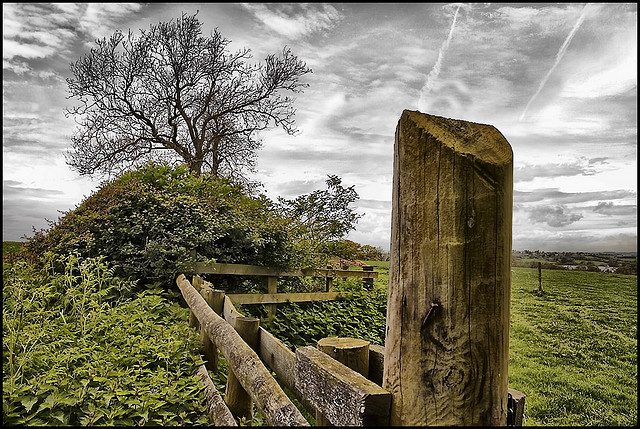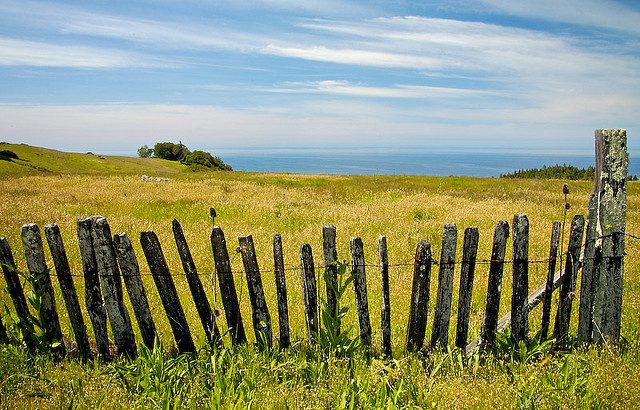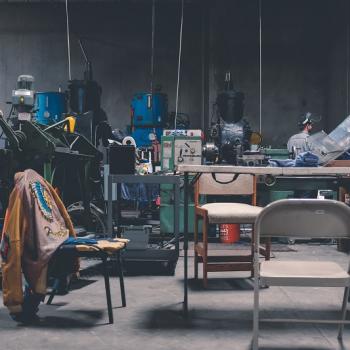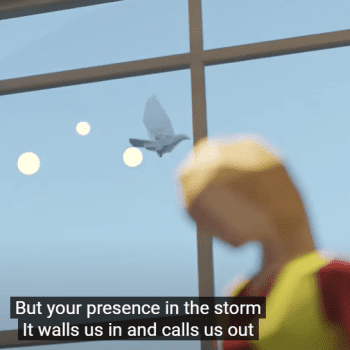Here’s another post in an occasional series about blue-collar work and meaning that we’re running here on MISSION:WORK. (You can read the first one here.) Here a pastor and former fence-builder reflects on the differences between the two callings.
By Jonathan Huddleston
 My first day of building fences, my boss took his workers aside during break. He gave us a few snacks and drinks, and read us two poems. One was, I think, a country song; the other he had written. They were about building fences, doing your best, leaving something straight and well-built behind you. He cried as he read them.
My first day of building fences, my boss took his workers aside during break. He gave us a few snacks and drinks, and read us two poems. One was, I think, a country song; the other he had written. They were about building fences, doing your best, leaving something straight and well-built behind you. He cried as he read them.
I have no doubt that fence-building was a calling for him. It was also a calling for at least one of my co-workers. In some ways, that made it harder for them. As in any job, things sometimes went wrong, and it was harder for them to be satisfied with a less-than-perfect job. It was also hard for them to accept those orders where the customer wanted cheaper materials, resulting in an inferior fence. They built what was ordered, but you could see that it pained them. These gentle men, so patient with my bumbling mistakes, would get surprisingly angry at anything that got between them and a job well done.
On most days, however, they had no problem feeling that their work had purpose. One of them had worked in ministry and teaching, and often talked proudly about his Master’s degree. He didn’t leave the church, he wasn’t fired, he wasn’t cynical. He just got tired of people, drama, and offices. He wanted to be outside, making things.
Things were different for me. Working with my hands, whenever I have had to do it full-time, is always a rude awakening. The sheer physical effort is deeply exhausting. I’ve never understood the people who claim that teaching, writing papers, preaching sermons, and similar tasks are “just as hard” as physical labor. Not every blue-collar job involves slamming post-hole diggers into rock-filled clay, but I’ve noticed a pattern with dish-washing, meal-serving, mopping, factory work, and construction. These jobs have pushed me to the edge of my endurance and beyond—usually before the first break.
Speaking of breaks, often I only had time to devour a few crackers, swig some water, and run to the bathroom before going back to the grind. I’d remember fondly all those “work hours” which involved sipping coffee, leaning back to ruminate, chatting with a friend, and (let’s be honest) checking Facebook. The papers—and sermons—still got written.
What’s odd is that some of my friends seem to think physical labor is either less challenging, or less meaningful, than “ministry.” It hasn’t seemed that way to me. After all, a “minister” gets paid money largely to organize, inspire, and facilitate “service.” (I know there’s more to it than that, but. . . .) The problem is that so much of it is words, written or preached, in sermons or meetings or even hospital rooms—seldom knowing whether anybody is being helped or not. From time to time you’d get people together to paint a house, or you’d get a chance to feed a meal to an elderly person, and you’d feel like you were really getting something done.
“Ministry” has its place, and I’m not knocking it. But it’s hard for me to see why this is more meaningful than the cafeteria server, hot-water-heater-factory-line worker, or construction employee who is getting these things done hour by hour, day by day. We can play up the challenges of ministry, but I’m kind of skeptical. All life is hard, all work is work. And while we like to think that we’re doing it for the Lord instead of for money, we’re getting paid just like the blue-collar workers are—usually more.
In the end, pay was the main reason I didn’t stay long in blue-collar work. Maybe it’s just because of I’m not very skilled as a craftsman or salesman, but I’ve never really understood my preacher friends who talk as though ministers and teachers could make more money elsewhere. With my personality, connections, and talents, I’ve generally found that supporting my family requires the sort of position that is directly or indirectly underwritten by the church.
And so I return to ministry, knowing I am good at many of its tasks (schoolwork, teaching, writing, preaching). I hope desperately that the things I do well, the things people will pay me to do, are also somehow contributing to the Kingdom. But I start to squirm whenever people act like my work is more Godly than theirs, more significant, more of a calling. I often suspect that the reverse is true.
 Often when I’m preaching one more sermon on Acts to a congregation that’s probably heard it before, or teaching Hebrew verb forms, or putting together another Vacation Bible School, or fumbling to show concrete love to a parishioner whose life is hard—I miss the hard clarity of a well-built fence, or a water heater that makes an immediate difference for the person who uses what I have made.
Often when I’m preaching one more sermon on Acts to a congregation that’s probably heard it before, or teaching Hebrew verb forms, or putting together another Vacation Bible School, or fumbling to show concrete love to a parishioner whose life is hard—I miss the hard clarity of a well-built fence, or a water heater that makes an immediate difference for the person who uses what I have made.
I remember that boss, tearing up as he read poems about fence-building, and I wish my ministry-work meant that much to me.
Jonathan Huddleston, Ph.D., is minister of First Christian Church in Hobbs, NM.
Images: Pat Dalton, “The Fence Post;” Peter Liu Photography, “Fence.”












